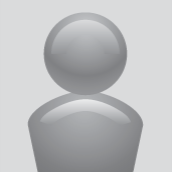
Info
47
Location
United States
Interests
The 4.0 technology revolution is changing many fields. With core content of artificial intelligence, the connection of things, and big data. Medicine is no exception to this revolution. The application of 4.0 technology in medicine is even more necessary to help build a smart hospital, supporting doctors in treatment.
The role of the 4.0 technology revolution in the health industry Applying 4.0 technology in medicine not only brings many benefits. For the medical team that people benefit from these technologies.
It can be seen in the recent Covid-19 epidemic, the application of 4.0 technology in the medical declaration. Tracing the source of the spread helps in the success of epidemic prevention.
Or online medical examination software at home has been deployed. Helping people not have to go to the hospital and still be diagnosed by a team of specialists 24/7.
Some hospitals have pioneered the application of 4.0 technology in medical examination, treatment, and health management, and have achieved initial results.
These are typical examples showing the great role of the 4.0 technology revolution in the healthcare industry:
- Analyzing medical record data helps the diagnosis and treatment process take place quickly and accurately.
- Health monitoring devices help detect diseases faster.
- The surgeries are carried out easily and with high precision with the help of surgical robots.
- The smart hospital management system helps medical examination, treatment and management become fast - neat - accurate, reducing administrative procedure time, improving hospital productivity.
How to apply 4.0 technology in medicine?
Applying 4.0 technology in medicine through artificial intelligence AI
AI artificial intelligence helps analyze data quickly and accurately. Especially in medicine, data is very complex, requiring high accuracy. Specifically, AI technology helps doctors in data collection and processing. Support diagnostic work, evaluate results, develop new treatment methods...
Some applications of AI artificial technology in the medical industry:
- Support pathological imaging with the CAD system to make diagnosis faster and easier.
- Support analysis and testing.
- Robots support high-precision surgeries.
- Support research into the latest cancer treatments.
- Analyze treatment data to select suitable drugs in the treatment of disease.
Applying technology 4.0 in medicine through nanotechnology
Nanotechnology includes new technologies such as biological nanotechnology, chemical nanoparticles, and nanorobots. Applied in killing cancer cells, anti-atherosclerosis. Repair damaged tissue or regenerate nerves,…
The application of nanotechnology in medicine is very important in the treatment of diseases with benefits such as:
- Identify and diagnose diseases quickly and accurately.
- Accurately determining the tumor location, no matter how small, helps prevent invasion and metastasis.
- Create new tools and treatment techniques.
- Deliver drugs to disease-causing cells quickly and accurately. Does not affect healthy tissue and cells.
- Disinfection and anti-infection.
- Edit genes and diseased cells without affecting surrounding healthy cells.
Challenges of applying 4.0 technology in medicine
The application of technology 4.0 in medicine brings many great benefits, but besides that, there are many limitations in infrastructure, human resources, and technology.
These are the challenges that the medical profession needs to overcome:
- Infrastructure challenges: with an extremely large data source gathered from many sources, the infrastructure must be strong enough to be able to store and organize scientific data. This is also the problem that leads to data exchange. Between colleagues, between hospitals, or between doctors and patients becomes difficult.
- Challenges on training and skill development: As technology is increasingly advanced and ever-changing, the condition of doctors and technicians is old. Experienced but not properly trained, or not proficient in technology. While the team of trained doctors is still inexperienced.
- Cybersecurity and safety challenges: This is also a big challenge for the healthcare industry when facing hackers who steal data.
However, if there is the involvement of the management agencies, at the same time the investment in infrastructure. It will help medicine overcome the above difficulties to move towards modern medicine.
The 4.0 technology revolution will continue to take place and be stronger than before. Therefore, overcoming difficulties in applying 4.0 technology in medicine will help the health sector go further and achieve many outstanding achievements.



